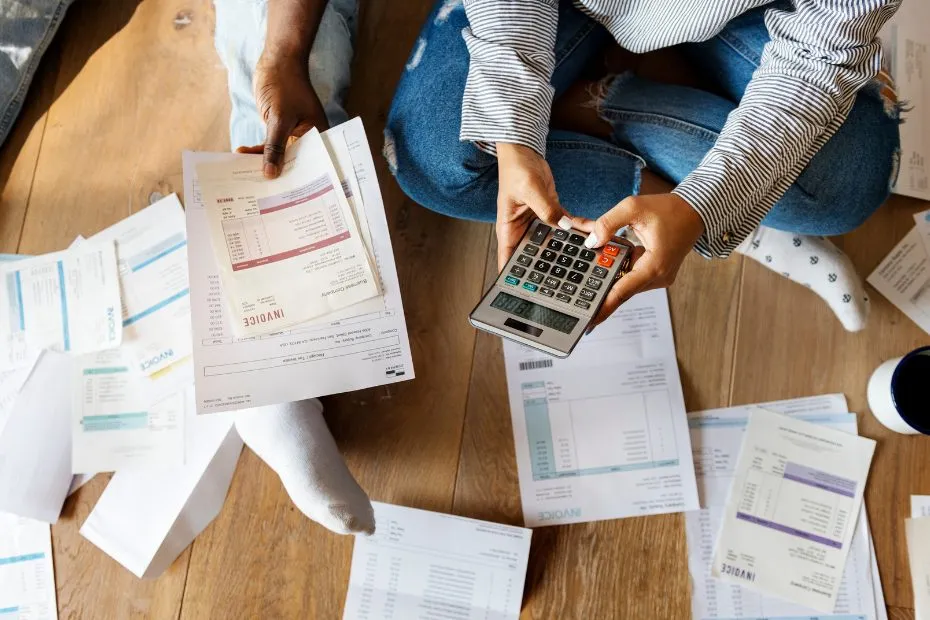In life, we’re often called upon to deal with unexpected expenses. Whether it’s a health problem that prevents you from working, car repairs or an urgent visit to the vet, these situations require immediate financial resources that aren’t always available.
Faced with these unforeseen circumstances, it’s important to manage your budget properly, and that’s where emergency funds come in. So what are emergency funds? How much should you save? Where should you place your fund so that it’s accessible when you need it?
What are emergency funds ?
An emergency fund is a sum of money set aside to deal with unforeseen expenses or financial situations. These expenses can arise at any time and can be of different kinds:
- Unexpected expenses for children or elderly parents,
- Spontaneous repairs to a car that has broken down in traffic,
- the loss of a job or a crisis in income sources,
- sudden increases in expenses such as bills.
This fund, built up little by little from your savings, can help you cope with these non-exhaustive expenses without going into debt or compromising your long-term plans.
However, it should be noted that this fund is to be differentiated from occasional expenses such as party expenses, school supplies for your children or others to consider when planning your budget.
What are the advantages of setting up an emergency funds ?
First of all, having an emergency fund guarantees instant access to money in case of the unexpected. Whether it’s for an urgent repair, an unexpected medical expense or any other pressing need, you don’t have to look for last-minute solutions. This security means you can manage emergencies with peace of mind and without stress.
Secondly, having an emergency fund considerably reduces the need to borrow money or go into debt. So you can cover unexpected expenses without resorting to credit cards or high-interest loans. This helps you to better manage your debts over the long term, avoiding the accumulation of unnecessary financial costs.
What’s more, it’s important to emphasize that with emergency funds, you’re better equipped to face life’s ups and downs without depending on outside help. This gives you greater autonomy in your financial choices, while protecting your other resources, such as long-term savings and investments.
To conclude this non-exhaustive list of the advantages of an emergency fund, it should be noted that this fund contributes to peace of mind. It avoids compromising financial goals such as retirement savings. This sense of stability and preparedness means you can face life with confidence, even in the face of the unexpected.
How much do we need to save in emergency funds ?
There is no static amount for establishing an emergency funds. The ideal amount to establish an emergency fund depends on your personal situation.
A single person with no family commitments, living in an apartment with no means of transportation, may be satisfied with a small savings reserve. However, a couple with more than two children and elderly parents, with cars in poor condition and property renovations to carry out, will need to consider a larger reserve.
A number of factors need to be taken into account, such as :
- Current income,
- Debts,
- Standard of living and current monthly expenses,
- Family size,
- Etc…
In general, it is advisable to set aside a savings reserve of 3 to 6 months’ net salary per month.
As a rough guide, as a single person with monthly expenses of around 1,500 euros, aiming for an emergency fund covering 3 to 6 months’ expenses means accumulating between 4,500 and 9,000 euros. To reach this target in two years, you’ll need to save around 188 to 375 euros a month.
For a couple with total monthly expenses of 3,000 euros, an emergency fund of 9,000 to 18,000 euros would be appropriate, requiring monthly savings of 375 to 750 euros over two years. These amounts can be adjusted according to your savings capacity and financial priorities.
Where and how to save an emergency funds ?
Here are a few tips on how to efficiently save funds for emergencies and unforeseen events.
Open a savings account
Since money needs to be easily and quickly accessible in an emergency, it’s important to choose the right type of account for your money. This account must earn interest on savings, have no transaction fees or penalties, and be separate from the main account for regular transactions.
Start with a realistic and long-term amount
Starting with a large amount can quickly become an obstacle or a source of discouragement. That’s why you need to start with a small amount to reach your goal, even if it takes time.
Make it part of your daily routine
Saving for emergencies takes discipline and perseverance. To this end, it’s a good idea to make saving a habit, for example, by creating a savings reminder on your phone or in your notebook. You can also automate your savings by scheduling automatic transfers into your savings account on payday.
Eliminate certain expenses and use them to save money
Not everything we spend every day is for needs. So we need to identify what we spend on needs (obligation and necessity) and separate them from what we spend on wants (wish, desire) or unnecessary items that we can avoid. For example, you can take public transport instead of your car, or make and take your lunch or coffee to work instead of buying them.
In conclusion, emergency funds are a cornerstone of sound financial and budget management. Setting up an emergency fund offers security and peace of mind in the face of the unexpected. But it requires preparation and discipline to give you the peace of mind and resources you need to manage these situations when they arise.



